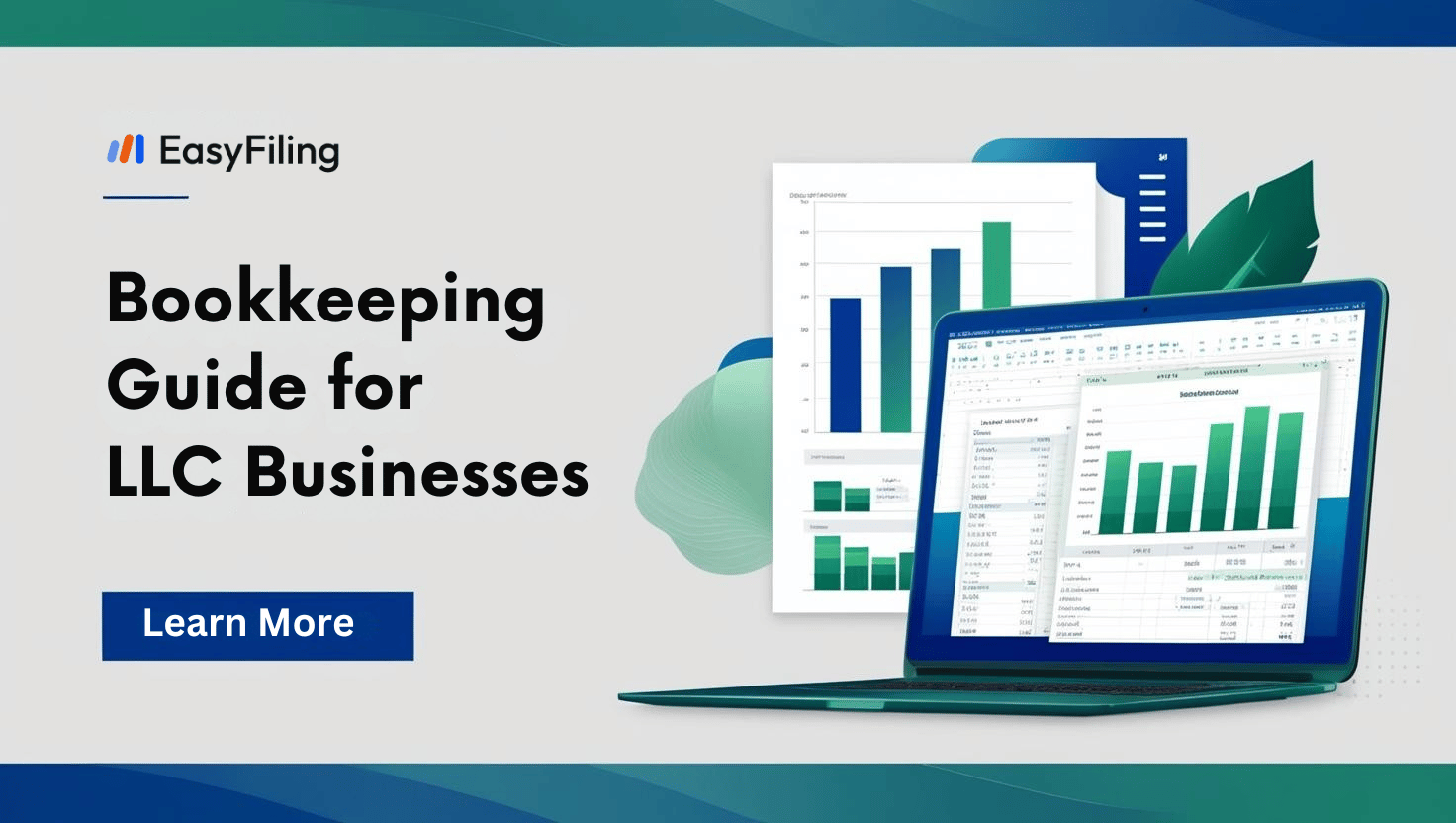Starting a business is an exciting venture that lets you explore endless possibilities and opportunities while enabling you to grow. However, it has some nits to contend with as well.
You will soon find out that one of the first and most significant choices you will have to make as an entrepreneur is which business structure to select.
It makes sense that many people decide to form a Limited Liability Company (LLC) in Utah. An LLC not only protects the personal liability of the individual but also allows for greater flexibility as well as tax benefits that many such small business owners look for.
In this article, we will walk you through the basic procedures to form an LLC in Utah. Also, we will discuss the benefits, requirements, and frequently asked questions regarding the process so that the readers can finish it efficiently.
Regardless of whether you are a business veteran or starting your company for the first time, the know-how on registering your LLC gives you the framework that your business requires for success.
Why to Form an LLC in Utah?
Limited Liability Protection
The ability of an LLC to limit business owners’ liability perks is its main distinguishing feature. Business members operate the business as owners, and thus all individual liabilities about the business are limited. In other words, personal assets such as a house or a bank account cannot be seized by business creditors.
Management and Structure Untouched
LLCs have unique management structures that members can either opt for the member-managed or the manager-managed setup. Through this, the owners can decide how much of their time is dedicated to the daily operations of the business.
No Double Taxes on Earnings
Automatically, LLCs are eligible for pass-through taxation where the earnings and losses are placed under the members’ tax returns, this ensures no double taxation occurs. This tax rule can be ideal for many small-sized enterprises, especially start-ups.
Ease in Formation and Maintenance
In Utah, an LLC may be incorporated with ease as there is minimal paperwork as compared to other business types such as corporations. The after-filing maintenance practices such as annual report filing are also not that intensive.
Enhancement of Business Image
Obtaining an LLC title may improve the perception of the business amongst consumers, suppliers, and investors. It shows that there is a serious obligation to the business and helps in enhancing the consumers’ faith in the business.
Steps to Form an LLC in Utah

Step 1: Select a Name for Your LLC
Every company ought to have a name, and as such, forming one needs no second guess. Below are some of the most important aspects that should be focused on when choosing a thumb:
Legal Restrictions: The LLC name that your company chooses must adhere to the legal guidelines which state that such a name should incorporate the words “Limited Liability Company” or the initialism, abbreviation, or acronyms “LLC” or “L.L.C.” This designation allows individuals or other outside organizations to know that the company is an LLC.
Originality: Check to make sure the proposed or intended name has not already been taken. The business name that people formed is available for the Utah business name search.
Prohibited Words: Some words may not be used without permission or may be banned altogether. Such as “bank,” “insurance,” or “trust” may be included in the business name, but they would require special permission or license.
Domain Availability: It is prudent to check for the presence of an appropriate domain name that would portray the nature of your type of business. Having the ideal domain comes in handy as it adds value to the marketing campaigns.
Step 2: Choose a Registered Agent
A registered agent represents the LLC in formal interactions and is responsible for receiving important legal and tax-related documents on behalf of the LLC. Here’s what you should check while selecting a registered agent:
Eligibility criteria: Investors can appoint either an individual (such as himself or a friend) or a business as the registered agent, which has been authorized to operate in Utah.
Physical Address: The registered agent should have a physical location in Utah (a P.O. box is not permitted). This will also be a public record address so select such a person who is okay with having their residential address made public.
Duties: The registered agent is authorized to accept service of process, which comprises legal documents such as lawsuits related to the business. They also need to remain present at the business premises during standard operating hours.
Step 3: Submit the Certificate of Organization
To register your LLC with the state, the Certificate of Organization officially shows that your business entity is an LLC in the state. This involves the following processes:
Collect Information Required: One will be required to submit information such as:
- LLC’s name
- Registered agent’s information which consists of the individual’s name and the address
- The address where the LLC is based
- Management structure, whether managed by members or appointed managers
Options for submission: The most current one is to file the Certificate of Organization, which could be done online through the Utah Online Business Filing system or by mail using a paper application.
Filing Fee: The filing fee is set to be $70. If you opt for filing in person or wish to expedite processing, then it might take up some extra fees.
Confirmation: The state confirms registration to you after the submission of an application. You should keep this document for your records.
Step 4: Study the Operating Agreement
In Utah, preparing an operating agreement is generally considered useful even if it is not mandated by law. This is the document that governs your LLC internally. The following are possible elements that can be added:
Ownership Structure: The percentage of ownership of the LLC shall be clearly described and the procedures for the introduction of new members and withdrawal of old members, if any, will be outlined.
Management Structure: It has to be made clear whether it is the members or hired managers who will run the LLC and the scope of their duties has to be specified.
Voting Rights: Determine the voting rights of the members, including how decisions will be made and what the minimum majority needed for specific decisions is.
Profit Distribution: Members and shareholders have to agree on how they shall allocate losses and profits, for instance, in numerical scales or percentages or any other way in which the members come to a consensus.
Amendment Procedures: Determine how the operating agreement that has been agreed upon can be amended in the future so that changes can be made whenever they are necessary.
Step 5: Obtain an EIN (Employer Identification Number)
An EIN, or an Employer Identification Number, is like a Social Security number for your business. There are numerous purposes for which this is necessary:
Application Process: Most people apply for an EIN using online applications which may be filed through the IRS website. It is a free application, and once done, your EIN is provided to you on the spot.
When You Need an EIN: An EIN is required when:
- You plan to employ people.
- You wish to establish a bank account on behalf of the corporation.
- The LLC consists of more than one person.
Tax Responsibilities: The EIN is also crucial if you are going to lodge tax returns for your LLC since it lets the IRS track the business for tax obligations.
Step 6: Stay abreast with State Tax and Regulatory Obligations
Your LLC in Utah may, however, be liable to payment of specific taxes or acquire licenses depending on the nature of the business you will be undertaking. Here’s what to keep in mind:
Sales Tax: In case your LLC offers products or services, you are required to charge a sales tax. Apply for a Sales Tax Permit from the Utah State Tax Commission.
Local Business License: Confirm with the council of the city or the county where you operate if you need business licenses or permits to enable you to operate above the law.
Special Applicability of Law: There may be specific laws and licensing requirements about particular sectors such as healthcare, finance, and construction. Study the particulars of your industry well.
Step 7: Submit the Annual Report
For your LLC to remain in good standing within the state of Utah, one is required to submit an annual report.
Submission Period: The company’s annual reports are due on the date on which it was set up. For example, if the LLC is set up on the 1st of March, the annual report will be due on the subsequent 1st of March.
Cost of Filing: The amount payable for the annual report in case of online filing or posting a letter is twenty dollars. Further expenses may arise in case of late filing.
Facts Required: The addresses of present member’s businesses, which are usually requisite for cornerstone documents such as annual returns will be reported in the annual report.
Step 8: Take Further Considerations for Business Operations
Once the registration of the LLC is perfected, take the following additional steps needed to run the business quite smoothly:
Open a Business Bank Account: Avoid blending your money with that of the LLC by opening a business bank account that is dedicated solely for business purposes. This assists in preserving the liability protection afforded to the LLC.
Establish a Bookkeeping System: Create a system of bookkeeping that will assist in capturing the inflow, outflow, and any business transactions of a monetary nature. This makes tax return preparation more convenient and also assists business owners in controlling their finances.
Try to Insure Your Business: Depending on the nature of the business, you may want to protect your assets with business insurance.
Keep Track of Compliance: Make sure you are aware of the changes that have occurred in the state law or regulations that may impact your LLC. Always read policies as well as operating agreements periodically and make changes whenever necessary.
Conclusion
Establishing an LLC in Utah is a good business decision for most entrepreneurs in as much as they have reasonable amounts of flexibility & protection under the law.
If you adhere to the steps that have been outlined above in addition to observing the laws of the state, you should be able to set up an LLC that works perfectly.
However, if you find yourself faced with difficulties or even have any particular queries, you may wish to contact an appropriate legal practitioner or financial expert, to understand how to move forward with the business.
Book a free consultation for clear guidance on how to set up a Utah Limited Liability Company and any other services that you may need.
Frequently Asked Questions (FAQs)
Do I have to submit reports for my LLC and if yes how frequently?
In Utah, LLCs must submit their reports on an annual basis which they organization at formation. The report must be filed no later than the anniversary date of when the LLC has been formed and its fees stand at $20 if it is submitted through the internet. If one fails to file the annual report, a fine can be imposed and the LLC may be dissolved.
Can non-resident LLC members form an LLC in Utah?
Non-resident owners are free to create an LLC in Utah. Non-residents can also hold membership in LLCs as there are no requirements to maintain a place of residence to take part in such an organization.
What are the ongoing compliance requirements for my LLC?
Two major compliance activities need to be performed on an annual basis and they include the annual report that never fails to be filed and also keeping the registered agent’s office active. Maintaining complete financial records, holding statutory meetings as required by the bylaw, and synchronizing with the laws of the state regarding the operation of the LLC in Utah are also good practices.
Is an operating agreement required in the context of an LLC?
In Utah, while creating an operating agreement is not a requirement by statute, such an agreement is highly encouraged. This document sets forth the method of management, ownership structure in the LLC, and all procedures related to the conduct of the LLC which mitigates conflicts among members by explaining the duties of the members.
File Your LLC Today
25$ off with a coupon
Lock in EasyFiling's transparent rates and get lifetime compliance support at no extra cost.
Get Started Now









